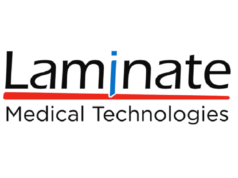 The American Association of Kidney Patients (AAKP), the largest independent kidney patient organisation in the USA, and its strategic partner, the George Washington University (GW) School of Medicine & Health Sciences (SMHS; Washington DC, USA), have hosted their Fifth Annual Global Summit on Kidney Disease Innovations (28 – 29 June, Washington DC, USA). The Global Summit “encourages participants to collaborate to advance science and medical innovation, advocate for more common-sense regulatory and payment policies, and to remove barriers to new life-saving treatments and cures”, a press release states. “AAKP”, it adds, “believes patients have a valid and rightful voice in the medical and policy decisions that impact their lives.”
The American Association of Kidney Patients (AAKP), the largest independent kidney patient organisation in the USA, and its strategic partner, the George Washington University (GW) School of Medicine & Health Sciences (SMHS; Washington DC, USA), have hosted their Fifth Annual Global Summit on Kidney Disease Innovations (28 – 29 June, Washington DC, USA). The Global Summit “encourages participants to collaborate to advance science and medical innovation, advocate for more common-sense regulatory and payment policies, and to remove barriers to new life-saving treatments and cures”, a press release states. “AAKP”, it adds, “believes patients have a valid and rightful voice in the medical and policy decisions that impact their lives.”
The event doubled its reach from 50 countries in 2019 to over 100 countries in 2023, it says. Over the course of the past five years, the Global Summit has conducted a cumulative total of “over 75 expert sessions, involving over 250 speakers from 40 countries, while generating 80 hours of broadcast quality filmed programming”. The Global Summit is described by the release as “the largest patient-led kidney innovations summit in the world”.
The cost of kidney disease in America alone, it says, is estimated at over US$100 billion annually, adding that this cost does not include the additional high costs to patients, families, and taxpayers of unemployment, disability, dependency, and premature death. Those costs are “often a direct consequence of burdensome and outdated status quo treatments, especially dialysis”. AAKP believes the full, true costs of legacy kidney technologies are grossly underestimated and should be weighed as new technologies emerge. AAKP “works closely with US Congressional leaders to ensure patient access to kidney innovations”.
The 2023 Global Summit agenda focused on advancements in diabetic kidney disease, endocrinology, metabolic diseases, cardio-renal syndrome, and unmet patient needs for new transplant drugs, artificial implantable and wearable kidneys, and xenotransplants. Topics were covered during 14 sessions involving a total of 60 patient experts, government, medical, and industry speakers. An international panel on unplanned events impacting kidney patients “provided timely lessons” learned from responses to earthquakes, hurricanes, and the war in Ukraine. Also, 2023 participants were able to curate their learning experience through an “After Hours” educational programme of over 70 additional webinars and over 30 patient-authored editorials.
At the event, the inaugural Global Kidney Leadership and Innovation Award was presented to Alex M Azar, II, the 24th Secretary of the US Department of Health and Human Services (HHS), marking the fourth anniversary of the 2019 US presidential Executive Order on Advancing American Kidney Health. Azar “was the architect of the Executive Order, widely regarded as the largest shift in American kidney policy in 50 years”. Secretary Azar and his team “regularly welcomed kidney advocates to the policy table”, including AAKP leaders, as they developed policies to “transform status-quo kidney care” through expanded patient care choice, patient-centred medicine, and “long-overdue” innovations in kidney diagnostics, drugs, and devices.
In 2019, to further organise and mobilise domestic and international support for kidney research and innovation, AAKP launched the Decade of the Kidney initiative, which it says has been “strongly embraced” by patients as well as senior Members of the European Parliament, the European Kidney Health Alliance, and the European Kidney Patient Federation. AAKP states that it will announce an array of new international partners over the next year.
During his remarks at the award presentation, Azar said: “The best way to create sound policy and to improve kidney care here in the USA and around the globe is to work directly with the stakeholders most impacted by disease. This means patients and not simply health systems or providers. It is vitally important for public officials—either appointed or elected—to listen closely to patients because government works for the people, not the other way around.
“The lesson is clear—the organised voice of kidney patients can change status-quo medicine and is key to advancing the next generation of kidney care treatments and cures. I strongly encourage industry to lean forward and work with patients as partners as new devices and therapies are developed.”
The Global Summit also hosted a special presentation by the World Health Organization (WHO) that unveiled a new Global Framework to Engage People Living with Kidney Diseases, including kidney disease. The Framework “elevates patients and their unique insights” within WHO and government policymaking worldwide and is the product of an 18-month, multi-continent collaboration that involved AAKP advocacy experts. The WHO also unveiled its People Power Series which references the Global Summit in one of 12 case studies on patient engagement across the globe.
The role of the nursing professions in kidney medicine was highlighted as AAKP awarded their nursing Medal of Excellence. Recipients were: Pamela Hoyt-Hudson of Dialysis Clinics (Brooklyn, USA) recognised for her “distinguished expertise and record of global impact across 25 countries”; and Janae Thompson, an “outstanding member” of The George Washington University Hospital Transplant Center (Washington DC, USA).












